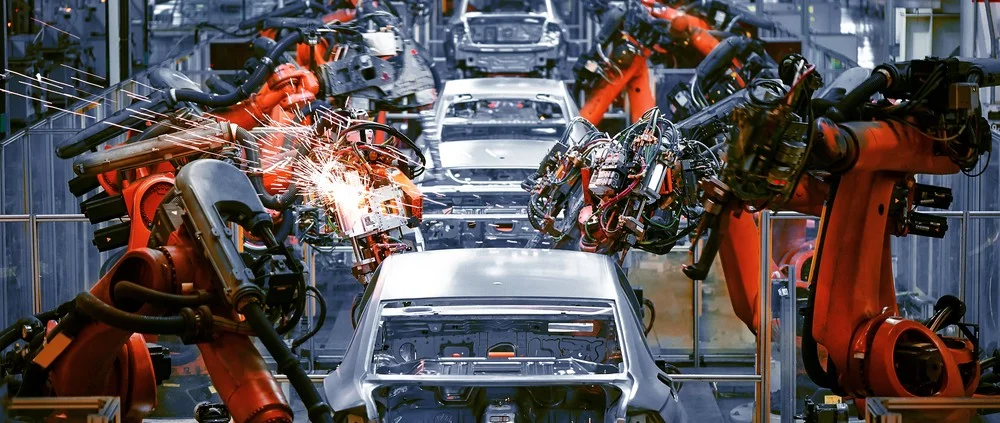Why Electric Vehicles Are Sparking Demand For Ethically-Sourced Materials And Blockchain Solutions
Demand for minerals like cobalt, cassiterite, nickel and lithium is set to surgein coming years thanks to the rise in demand for lithium-ion batteries.
A marked shift towards the production of electric vehicles (EVs), combined with a continued emphasis on cell phone, laptop and electronics production, is driving manufacturers to source more of these minerals.
While there are always consequences to large-scale changes in market demand, the truth is, many of the materials that end up in electric vehicles come from developing nations and politically unstable areas.
Unfortunately, child labor is used in these places to keep up with demands.
In many regions across the globe, over a quarter of children are engaged in child labor. Mines are no exception. And the profits from mining minerals often fund violent and extreme groups, creating even worse conditions for children and workers.
These problems, and their solutions, are not simple. There is no technological cure-all for societal ills.
But emerging technology like blockchain can make a difference. And in the future, it could be an essential part of a multi-pronged solution.
Here’s why:
The demand for electric vehicles will only increase.
By 2040, electric vehicles could account for 54% of new car sales.
Many people assume EVs are environmentally friendly because they don’t release the carbon pollution of gas guzzlers. While the output of these vehicles may be better for us, it’s also worth taking a look at the input.
For instance, the batteries of electric cars are heavily dependent on nickel — a metal that has largely flown under the radar for quite some time. But nickel mining is often dangerous and toxic to local communities, polluting rivers and poisoning the environment.
And nickel isn’t the only battery material with sourcing issues. Over half of the world’s cobalt is mined in the Democratic Republic of Congo (DRC), a politically unstable country with widespread child labor and human rights violations. In areas like the DRC, regulatory pressure around working conditions is not enough. It takes a push from consumers and businesses to create real change.
And recently, a group of automakers recently came together to form a consortium to deal with these issues in their own supply chain.
This demonstrates an industry joining together to focus on responsibly-sourced materials.
The automotive industry is coming together to meet a variety of pressures.
Increased consumer concerns about the safety and sustainability of the products they buy is certainly one of those.
But so are the economics of production. As the demand for these minerals grows, any gaps in the supply will have massive consequences on automakers’ bottom lines.
Part of the push to find responsibly-sourced materials is also about ensuring a steady supply that won’t suddenly cut off when violence erupts or a mine is forced to close.
Auto companies have an incentive to join together and clean up their supply chain, if only to ensure a consistent supply of the materials they need.
Blockchain will solve for supply chain tracking, while starting a broader conversation.
In a statement to the Guardian, the electric car company Tesla admitted they have trouble tracing their nickel back to its provenance because their suppliers are “three or four layers removed from Tesla.”
That’s exactly the kind of problem blockchain will help solve.
Visibility into supply chains is one of blockchain’s most powerful use cases. And tracing materials from their source is more than just good PR for corporations. It also acts as a major incentive for suppliers and mines to clean up their act.
When manufacturers have visibility into which suppliers are using responsibly-sourced materials, they are more likely to use suppliers with good behavior — while effectively punishing unethical suppliers.
And we’re already seeing the results. There’s currently a plan in place to begintracking cobalt from artisanal mines in the DRC all the way to its final location in EVs and electronics. If these companies can obtain buy-in from all participants in the supply chain, it could go a long way towards ensuring a more ethical source of cobalt.
Still, this is an issue that has to be viewed on a global scale. It’s not just about tracking in the supply chain.
Those efforts can certainly help, but they’re inescapably intertwined with political, societal and economic drivers that create openings for unethically-sourced minerals.
Blockchain isn’t the whole answer, but it can be part of the solution.
This piece originally appeared in Forbes on April 19, 2018.
Thanks for reading!
Follow me on Twitter and Quora for more insights on blockchain technology.

